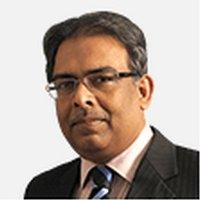Bihar elections: First major polls since pandemic a test of Modi's popularity
- Published
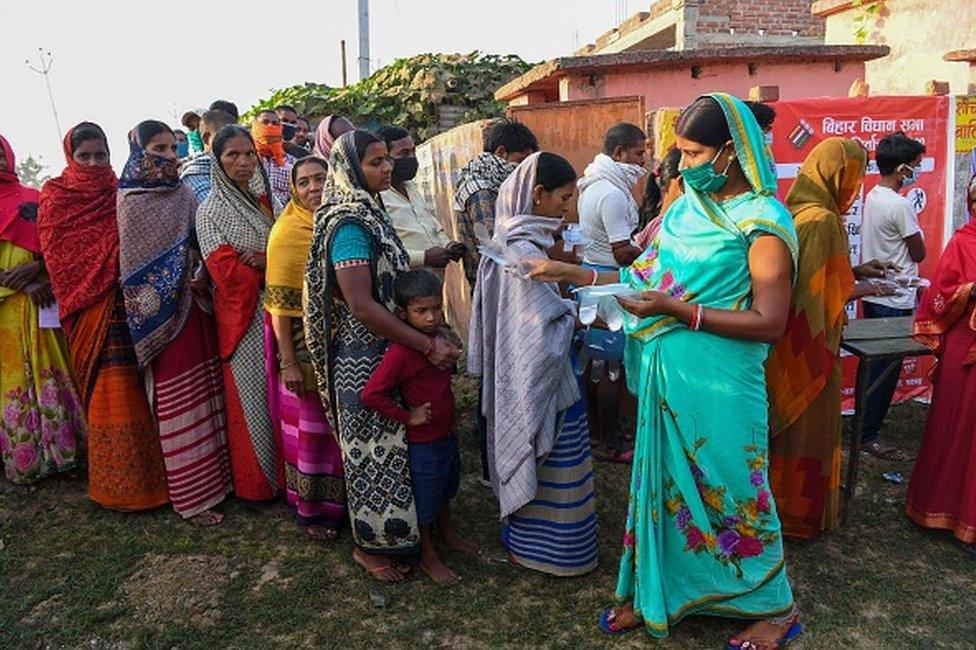
Disposable gloves were given out to voters on Wednesday morning
India's first major elections since the beginning of the pandemic promise to be closely fought - and another test of Prime Minister Narendra Modi's popularity.
More than 70 million voters are eligible to cast their ballots for 243 assembly seats in the eastern state of Bihar. Polling began on Wednesday in the first of three phases and votes will be counted on 10 November.
During a year when more than 60 countries postponed voting, external, authorities in India went ahead with polls in Bihar, which has a population comparable to Japan.
Traditional forms of campaigning were suspended and virtual rallies were held initially. Polling stations and voting time have been increased to avoid congestion. But all this may well be too late: people and leaders alike have thrown caution to the wind in recent weeks and turned up enthusiastically - and unmasked - at huge public meetings.
Frustrated authorities have warned politicians against flouting Covid-19 safety rules without much success - there are concerns over a spike in infection in a state which has reported more than 200,000 Covid-19 cases so far.
One of India's poorest states, Bihar is a key electoral battleground. Its 124 million people are divided sharply along caste lines. With some two dozen home-grown parties, including 11 new ones, in the fray this time, the state is a crucible of alliance politics. "The multiplicity of political parties makes things very complicated in Bihar," Suhas Palshikar, a leading political scientist, told me.
Bihar is also the only big state in India's sprawling and politically febrile "Hindi-speaking heartland" that the BJP has not won on its own. Narendra Modi's BJP has been in power for more than a decade as a junior partner in alliance with a regional party, the Janata Dal (United) or JD-U, led by Nitish Kumar, a powerful regional leader whose star may be on the wane.
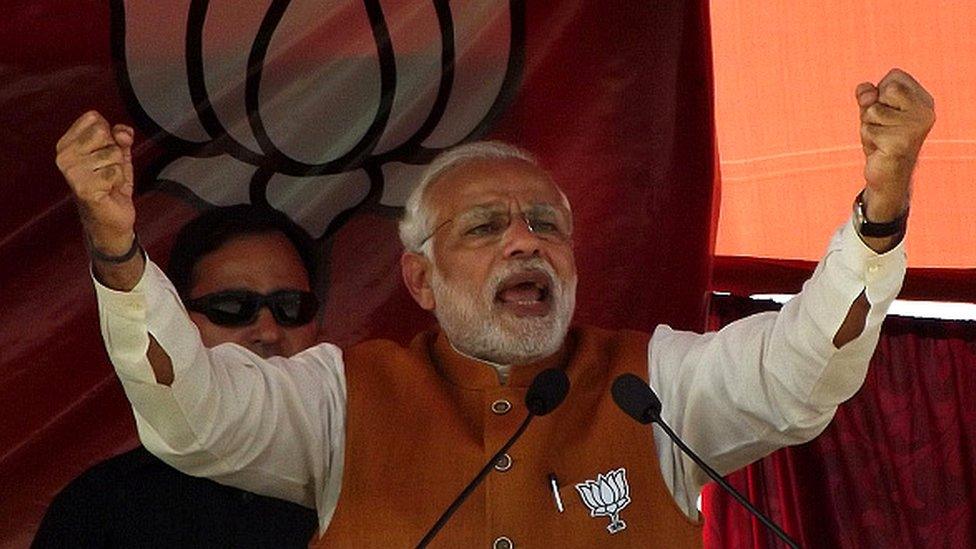
Narendra Modi is addressing a dozen election meetings in Bihar
Indian voters traditionally punish incumbents. Despite two successive stunning wins in federal elections since 2014, Mr Modi's party itself has a mixed record in state elections - the BJP has lost more elections than it has won in the past six years. It has not won a clear majority in any state since polls in Uttar Pradesh four years ago. In the past two years, it has lost six state elections and gained power in one by cobbling together a majority with a regional rival-turned-partner.
So Bihar will be a test of the BJP's winning abilities, especially with tougher state elections scheduled for next year in Bengal, Kerala and Tamil Nadu. "It is literally the last opportunity for the party to shine before the harder contests next year. Bihar will prove whether the BJP's streak of defeat at state level continues or not," said Gilles Verniers, assistant professor of political science at Ashoka University.
Mr Modi's government is accused of botching a sweeping lockdown to stall the spread of coronavirus at the end of March by forcing millions of out-of-work migrants to flee the cities and return to their villages. More than two million of these workers returned to Bihar. The election will tell us how voters have responded to the government's handling of the pandemic.
India's economy had stalled well before then: joblessness was high, farm prices were low and industrial production was crawling. The pandemic has ravaged poor economies like Bihar: unemployment rates have climbed above the national average, and remittances from migrant workers which accounted for a third of the state's revenues have dried up.
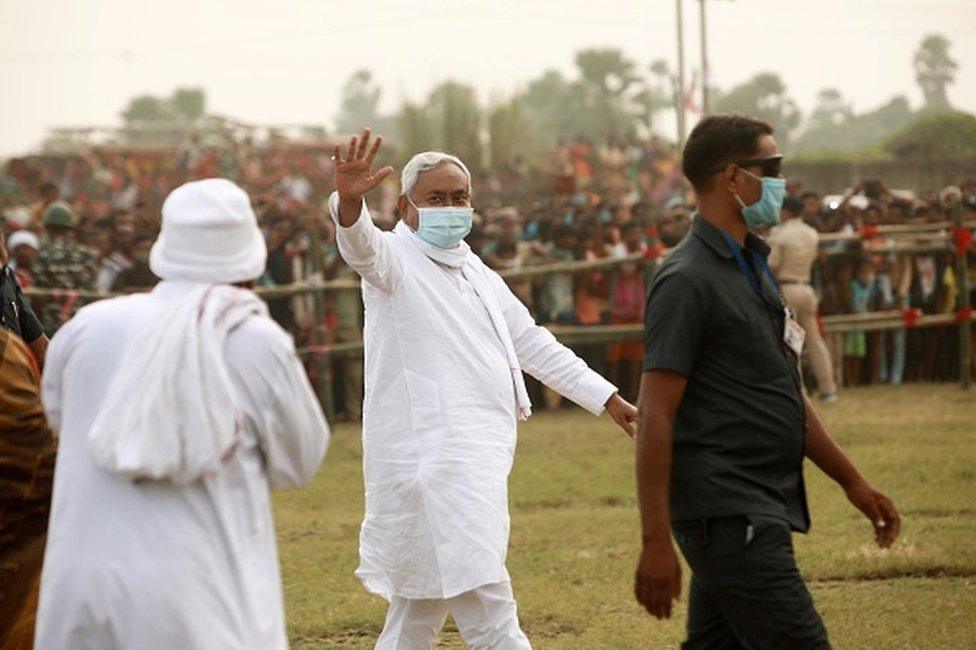
Nitish Kumar has ruled Bihar for 15 years and is facing voter fatigue
Still most locals appear to blame Mr Kumar for not doing enough as chief minister to bring back stranded workers, instead of Mr Modi, whose hastily-executed lockdown triggered the exodus. One reason for this could be a rising tide of anti-incumbency against Mr Kumar, who is seeking a fourth consecutive term. "The pandemic has exacerbated matters. Unemployment is a major issue. We have no idea how this will translate into votes," says Prof Vernier.
Many believe the contest is wide open. Mr Kumar, who has ruled Bihar for 15 years and leads the coalition, is trying to buck anti-incumbency. Ranged against him is a rainbow coalition, led by the regional Rashtriya Janata Dal (RJD), which in turn is led by a young dynast son of the once-powerful Laloo Prasad Yadav, now serving a jail term for corruption. To add to this complex alphabet soup of parties is the small caste-based Lok Janshakti Party (LJP), which has broken away from the ruling coalition and is fighting on its own.
Mr Kumar is now one of Mr Modi's closest allies. He has built his reputation as an astute populist who has provided basic amenities, curbed crime and controversially banned liquor in a state blighted by crippling feudalism and endemic misrule. But jobs remain scarce and there is growing voter fatigue. This time, Mr Kumar appears to have been overshadowed by Mr Modi, a leader who possibly evokes more hope.
The election, according to political scientist Rahul Verma, will mark the beginning of the eclipse of an old guard of stalwart regional leaders - including Mr Kumar - who have traditionally shaped Bihar's politics. The BJP clearly senses that its time may have come to lead a winning coalition. "The BJP has been slowly rising in Bihar on the back of the JD (U). A party which used to be a marginal player in Bihar has piggybacked on a regional partner and could well emerge as the single largest party this time," says Mr Verma, a fellow at the Centre for Policy Research, a Delhi-based think tank.
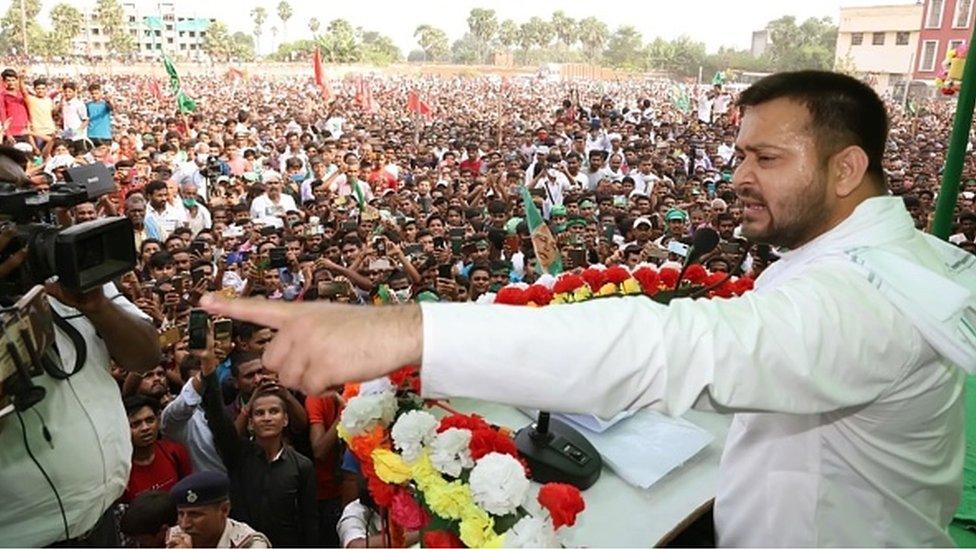
Tejashwi Yadav, who is leading an opposition coalition, has participated in mass rallies
Some believe the BJP's patchy electoral record in the states is not indicative waning popularity. The party has lost states because of local leaders who appear to lack charisma beside Mr Modi's larger-than-life, presidential personality. "The BJP started from a low base in many states, and the beginning of the party's domination has just begun. They will keep losing elections - that's the nature of competitive elections. But electorally, they are still some distance away from the peak," says Mr Verma.
India's state elections are fiendishly difficult to predict. Voters' choices are decided by a strange alchemy of caste loyalties, religion, chemistry between the rulers and the ruled and performance of incumbent legislators. A leading opinion poll , externalhas predicted a clear win for the ruling coalition led by Mr Kumar. But it also found that one in four voters were undecided about whom to vote for. A hung assembly is not ruled out.
How many seats Mr Modi's party wins on its own will be keenly watched. An uptick will confirm the BJP as the dominant player currently in Indian politics. A less-than-impressive performance will worry Mr Modi and provide a glimmer of hope for India's enfeebled opposition.
Follow Soutik on Twitter at @soutikBBC, external
- Published23 October 2020
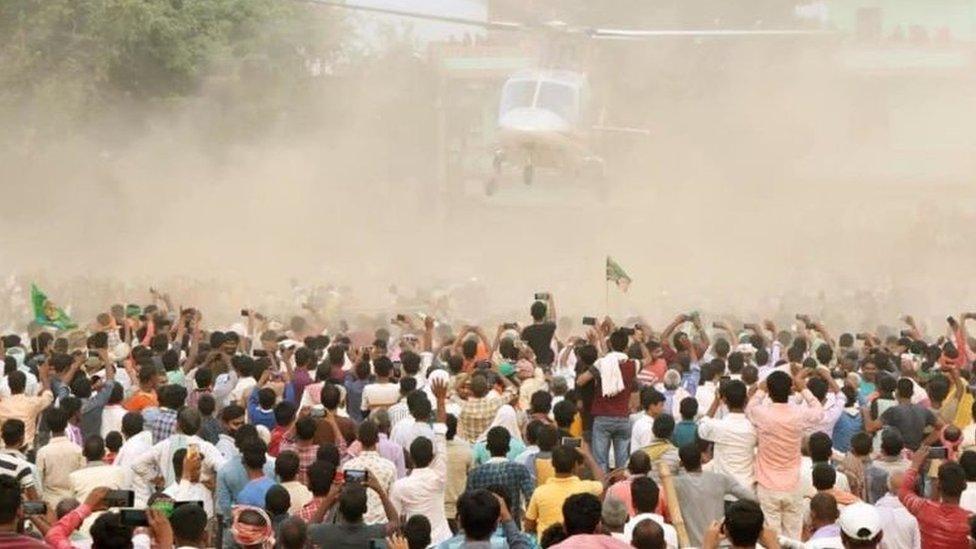
- Published24 May 2019
